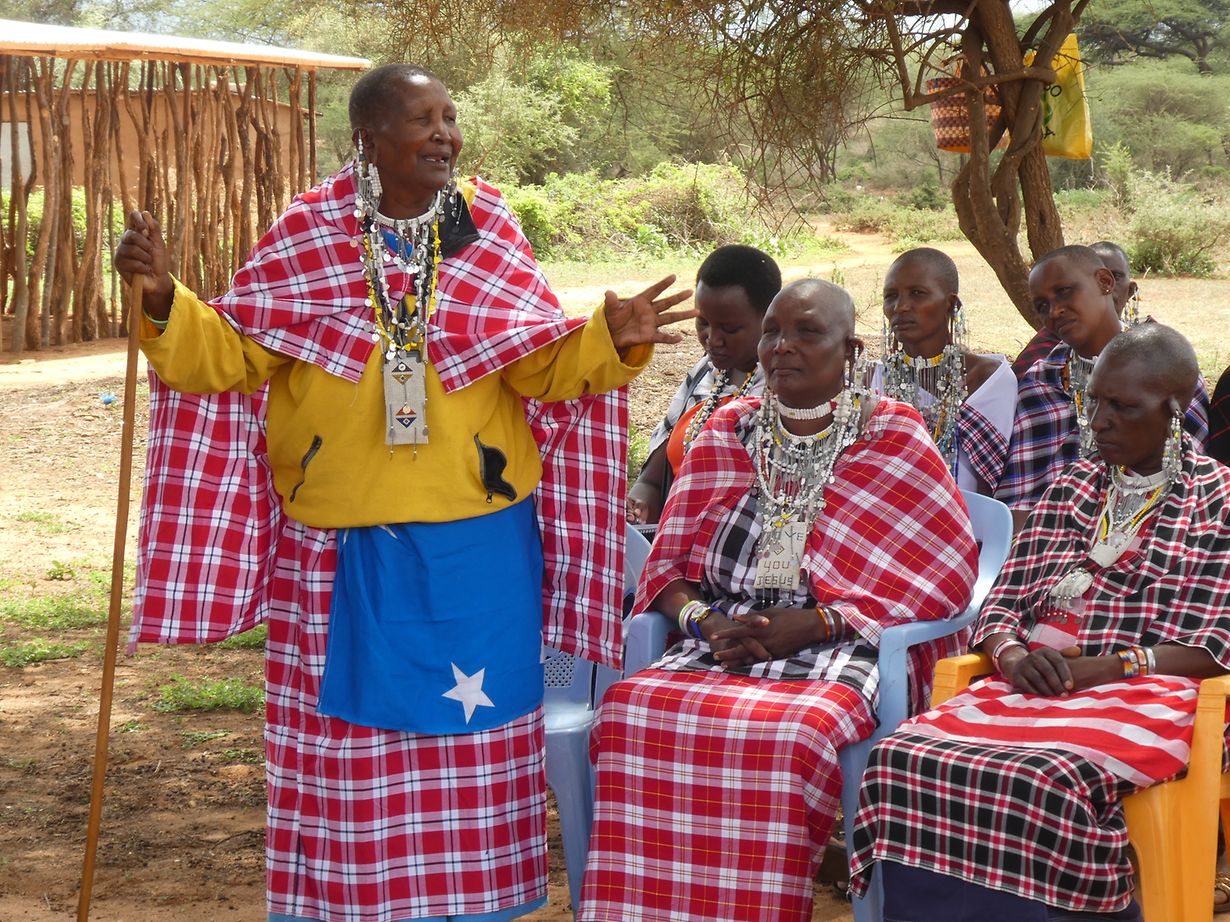Wanawake Tunaweza Project: the Empowerment of Maasai Women


In global development, the contribution of women’s voices in shaping a sustainable and equitable future is vital. This is particularly relevant in regions where deeply rooted patriarchal systems prevail, and the position of men is favoured in society. In the words of Graca Machel, humanitarian & former first lady of Mozambique and South Africa; “To be a powerful woman means to have the possibility, the right & responsibility to make choices that better oneself & better one's community”. In this regard, women’s access to decision-making, resource control, and education is vital to achieve a reality of empowerment.
Recognising the need for change, North-South Cooperation has partnered with the Legal Services Facility (LSF) to carry out the Wanawake Tunaweza project in Tanzania. The primary objective is the empowerment of Maasai women and girls in Longido District, by creating conditions through which they are able to claim their rights and redefine their future. LSF’s expertise in creating pathways for access to justice are vital to the creation of a conducive environment that features sustainability and accessibility of legal aid for the improvement of women’s socio-economic well-being.
Through conducting field visits, it became evident that the rationale for women’s subordinate position in the Maasai community stems from early challenges faced by girls, a continuing silencing of their voices, and subsequent absence of women in social and political circles. Due to important decisions remaining in the hands of men, women's issues are customarily not prioritised. Through local capacity building and adopting a bottom-up approach, we aspire to respect the unique and traditional way of life of the Masaai whilst simultaneously amplifying female voices within. In this regard, traditional leaders are key stakeholders in achieving behavioural and cultural change that puts women on equal footing to their male counterparts.
To position women as central actors in Maasai society, the project focused on three pillars; economic empowerment, social awareness and girl’s education. The first strategy featured empowerment through an economic lens, through setting-up women’s cooperatives, the provisioning of business training, and the facilitation of an access to the market for a total of 11 women's groups. Providing women’s groups with technical expertise and entrepreneurial skills encourages independent financial management. Secondly, the social dimension was taken into account in the form of various awareness raising activities. Through fostering dialogue on gender equity, legal rights, and the economic and social benefits of empowering women, around 2,500 community members were made aware of the issue. Lastly, to tackle the root cause of a lack of equality from a young age, quality secondary education was established through the construction of two dormitories that were able to accommodate 1,214 girls. Furthermore, trained women’s groups produced and supplied reusable sanitary products, thereby addressing a critical barrier to girls’ school attendance. Furthermore, teaching girls about sexual and reproductive health rights, threats to their wellbeing with regard to harmful practices, and necessary life skills, served to achieve empowerment at an early stage.
We are committed to building a future where Maasai women lead lives of dignity, autonomy, and opportunity. Justice for women requires breaking the cycle of marginalisation.
Mia Blacklaws
